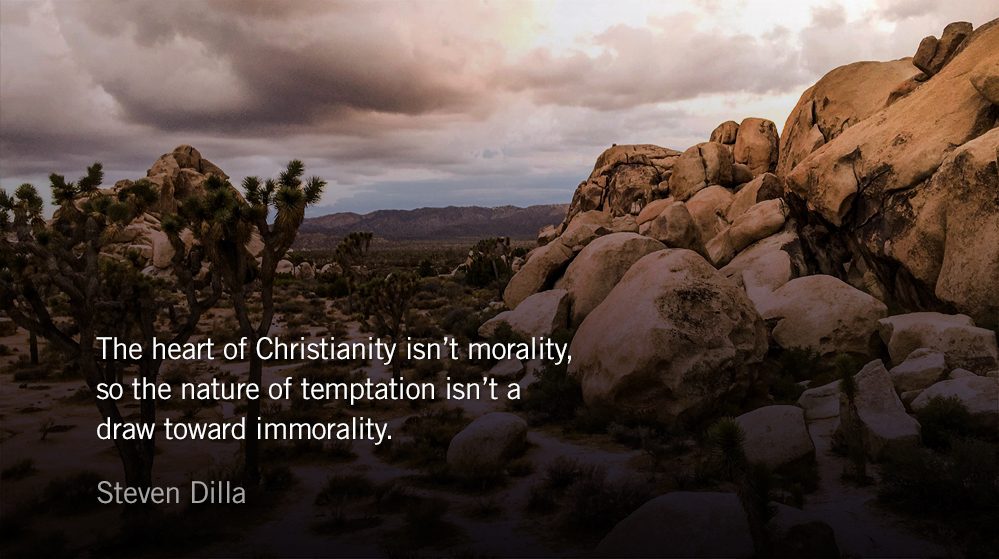Most of the ethical principles or rules in the Bible are not simply codes of behavior for individuals to follow; they are descriptions of a new community that bears the spiritual fruit of love and holiness.
― Timothy Keller
Lenten Reflection: The Nature of Temptation
The Park Forum
The heart of Christianity isn’t morality, so the nature of temptation isn’t a draw toward immorality. As we enter in to the first day of Lent—a season of fasting and service, mindfulness, and community—we take time to reflect on the temptation of Christ. In the brutality of the wilderness we see that the heart of temptation is to convince us that life is better without God.
Divine sonship for Jesus meant far more than the power to do miracles. Jesus’ intimacy with the Father reoriented every aspect of his life. Therefore, when he faced temptation, this holy relationship was hit hardest. It is no different today. Temptation strikes at the core of our identity. N.T. Wright observes:
The first two temptations play on the very strength he has just received. ‘You are my son, my beloved one!’, God had said to him. Very well, whispers the demonic voice; if you really are God’s son, surely he can’t want you to go hungry when you have the power to get food for yourself?
In the wilderness the offer is made: quench your material longings by your own ability. Jesus’ reply? In the end, that wouldn’t satisfy my deepest longings. We have so many appetites—find a way to feed them all on your own and you’ll still be hungry.
Theologian Don Garlington reflects,
The impact of Satan’s temptation is that Jesus, like Adam first and Israel later, had a justifiable grievance against God and therefore ought to voice his complaint by ‘murmuring’ (compare Exodus and Numbers) and ought to provide for himself the basic necessity of life, namely, bread.
Satan, in other words, sought to make Jesus groundlessly anxious about his physical needs and thus to provoke him to demand the food he craved.
The invitation of Christ is an invitation to have our deepest needs met in someone whose very nature is love. In the embrace of his mercy and grace we find the resting place for our identity. We experience in Christ’s forgiveness of us the freedom to forgive others. We find in Christ’s power all we need to flourish in the wilderness of our world.
Prayer
Your way, O God, is holy; who is as great as our God? — Psalm 77:13
– From The Divine Hours: Prayers for Springtime by Phyllis Tickle.
Full prayer available online and in print.
Today’s Reading
Exodus 12.22-51 (Listen – 7:31)
Luke 15 (Listen – 4:19)






